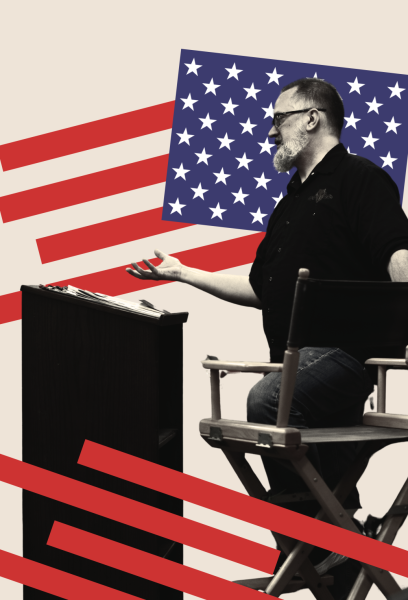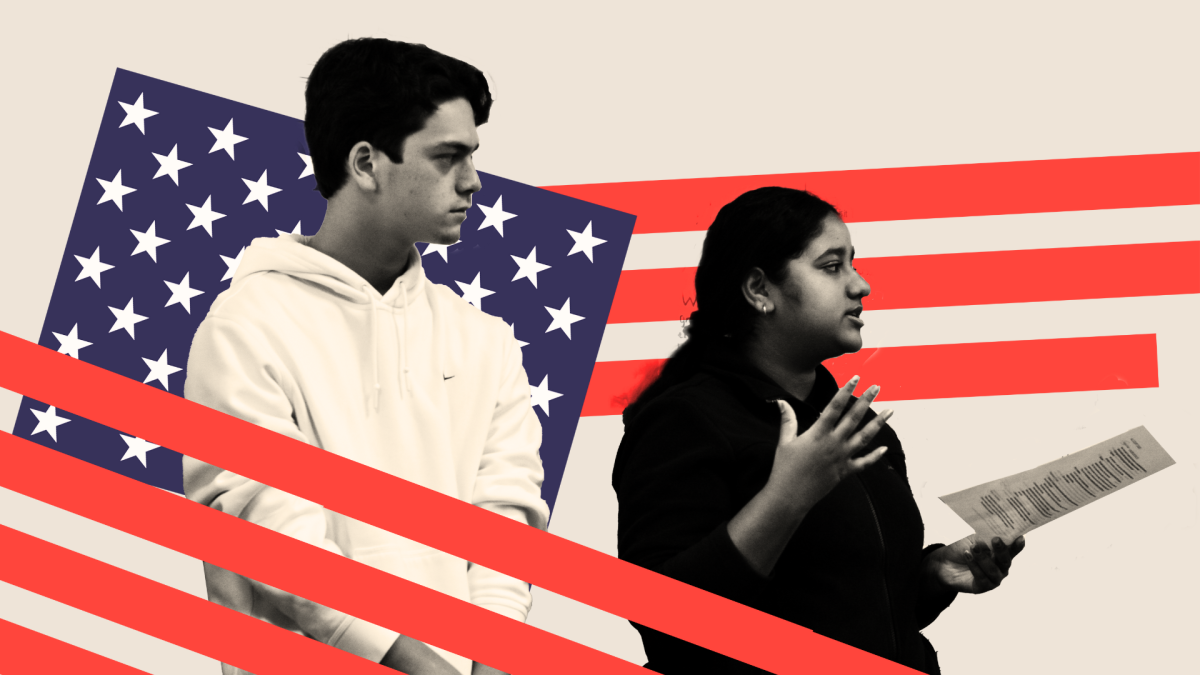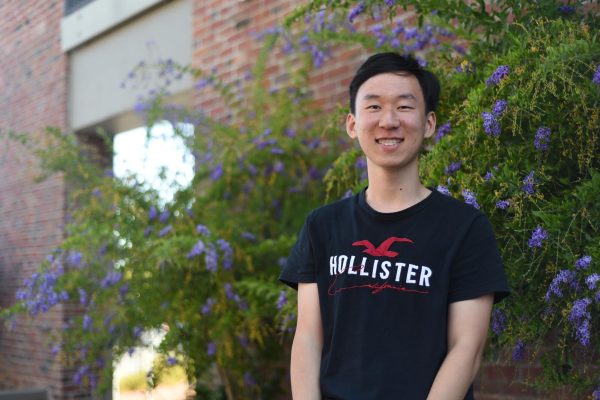When he turned 18, U.S. Government and Politics teacher Benjamin Recktenwald registered as a member of the Green Party and has remained one ever since. He resonates with the Green Party’s pro-environment, pro-worker and people-over-profit values and believes that voting is a responsibility when living in a democracy.
As a government teacher, Recktenwald says part of his duty is educating students about the election. Recktenwald embraces the idea of approaching government class as a current events class by incorporating voting guide projects, mock elections and discussing voter suppression.
To encourage student involvement in politics, Recktenwald distributed voter registration cards in his U.S. Government and U.S. History classes. There has been an increase in young voters in the past decade, and Recktenwald feels strongly that the American people have been more politically active in this year’s election because “there’s something really at stake this time.” He cites the recent uptick in political violence as a prime example, also mentioning how there have been safety concerns about polling stations located at schools. Recktenwald believes that people are buying into the idea that this election was about “defending American democracy.”
“It’s this kind of double-edged sword, where there’s so much controversy, so much toxicity, so much rage flowing in our government,” Recktenwald said. “On the other hand, it’s driving people to participate in politics.”
Recktenwald says there’s been more enthusiasm among his students for voting compared to the

Benjamin Recktenwald facilitates a mock Supreme Court debate. Photo | Eric Zhou (Eric Zhou)
start of his teaching career 25 years ago. He even says that young voters around voting age exhibit more passion for voting than adults, attributing this to the fervor dying off with age. However, he admits that young voters lack optimism in viewing the election.
Current events have led senior and U.S. Government student Piers Boyer to notice a stigma around politics, which may discourage young voters from even considering casting a ballot. In particular, the 2024 Presidential Debate has made him more skeptical about both candidates.
“They’re not even debates anymore, they’re just politicians not answering questions and using every instance to try and defame the other contestant,” Boyer said. “It’s really a contest of popularity at this point.”
Recktenwald acknowledges the pessimism toward the current presidential election, with the amount of lying by politicians of both parties, yet he questions how well-informed undecided voters are.
“If you can’t decide between the two candidates, one question I have is you need to get better informed, and what are your sources of information?” Recktenwald said. “There are clear differences between Harris and Trump, and you might favor one over the other, and that’s fine. I always tell my students that I’m going to talk about politics and the election. In class, if you disagree with anything I say, that’s fine. All I ask is that you back it up with evidence.”
As an alternative to national elections, Recktenwald has encouraged students to vote for candidates in local offices and on the California ballot, noting that voting in a local election could have a larger impact. Having grown up in East San Jose, he recalls an election for a vacant city council position where he claims he and his family were among the only people to vote in a low-turnout election. Recktenwald even says the Green Party should focus efforts on local elections for greater impact, as he fears a Green Party presidential candidate would only draw votes away from Harris. Regardless, he emphasizes the significance of voting to his students, whether or not their chosen candidate wins.
“It’s a civic duty — it’s not just an opportunity,” Recktenwald said. “It’s the idea that you live in a democracy, and you’re expected to vote. It’s like you pay taxes, you obey the laws and you need to vote.”
As a supporter of Kamala Harris and a critic of Donald Trump, Recktenwald does not forgo his political identity in the classroom. Instead, he invites open, frank discussion.
As president of the Politics Club, senior Ali Malik says the classroom environment actually inhibits students from sharing their political opinions, which informed his decision to lead a student-run civic engagement club. He says students may be discouraged from sharing a political opinion that contrasts with those of teachers or peers. In Politics Club, Malik helps facilitate debates among students concerning where different candidates stand on policies and has plans to invite activists for a student panel.
“I think we live in a society where no matter where you’re at, people have to usually conceal their political beliefs out of fear of being attacked for what they believe in or out of fear of being unpopular,” Malik said. “The fact that people in Politics Club are able to share their political opinions without necessarily fearing extreme backlash from students is something that’s really powerful.”
Recktenwald disagrees, believing that the classroom doesn’t inhibit any sort of discussion — rather, it simply depends on the student. He recalls instances where students who were friends had contrary political opinions and openly expressed their views in his class. By encouraging classroom debates, Recktenwald hopes to create active, participating citizens, a sentiment that Boyer aligns with.
“We will be the ones with the majority vote leading into the upcoming years,” Boyer said. “I would definitely say that because we are the next generation of the workforce and the country, we have to make sure that our country, how we live our lives, is run the way that we need rather than the way what we want.”










